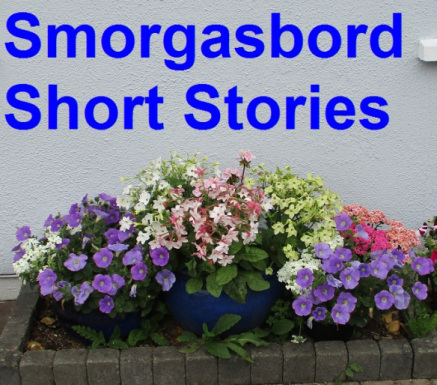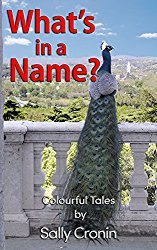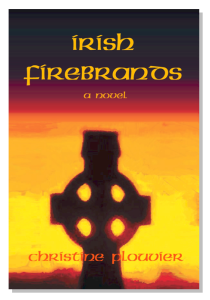K.D. Dowdall's Blog, page 30
September 28, 2018
Trauma and Memories
So, thousands upon thousands of young women have experienced this trauma, including me, and few believe or support young women- even a few women who have been brainwashed don’t support other women. Why is this so? Where are the fathers? Where are the ministers? Why are women not believed? I know why, because thousands upon thousands of young men, and older men are not quite human yet, and their savagery is encouraged by fathers and ministers, like the evangelicals (I know them quite well). The truth is, it would mean relinquishing their perceived power given to them by our society of thousands upon thousands of not quite human men because they know, that no harm will come to them, just like now. No harm will come to Kavanaugh, because the Senators, as substitute fathers, have will it to be so. I have empathy for them, because one day they will all face their fates, the world is funny that way.
Today, much of the United States have been glued to their tv screens, computers, tablets, and smartphones, watching the sickening spectacle of Dr. Christine Blasey Ford and Judge Brett Kavanaugh as they gave emotional testimonies before the Judiciary Committee. After watching Dr. Ford being questioned over 3 hours, I have to say that she was sympathetic and credible. There’s one thing that I wanted to address that the Republicans and Rachel Mitchell, the Republican sex crimes prosecutor who was hired to question both Dr. Ford and Judge Kavanaugh seem to be obsessed with. How is that Dr. Ford can remember in such detail the actual assault, but not other things like the exact date and time of the party, how she got there, and whose house it was. I’m going to share something that I’ve only shared with my husband, that may not provide a full explanation, but maybe put…
View original post 382 more words
September 23, 2018
20 Tips to Proofread Like A Professional
Haunted Pen has put together the most complete list of how to Proofread, the right way, your manuscript!
 Proofreading. Some writers love it, some writers despise it. But whatever your feelings, proofreading is your final task when preparing to share your words with the world.
Proofreading. Some writers love it, some writers despise it. But whatever your feelings, proofreading is your final task when preparing to share your words with the world.
Writers often read their words the way they believe they wrote them, not how they actually wrote them. This means spelling mistakes, typos and grammatical errors, such as poor sentence structure, wrong choice of words and punctuation can all go unnoticed by the writer. These factors impact the context and readability of the work.
The good news is that proofreading skills can be learned, developed and improved. Where is the best source for information on learning how to proofread, I hear you ask (at least I hope you are).
Fear not my friends, help is at hand and The Haunted Pen is here to save the day!
The best source for hands-on information is a professional proofreader – someone who has spent years…
View original post 1,522 more words
September 20, 2018
Twilight September
I’m a little speechless, because these words speak so well about the passing of seasons and memories of our days gone by. Beautiful.
 William Pearse | pinklightsabre
William Pearse | pinklightsabre
In the late afternoon shadows, by the underlit leaves, near a tree bent by the weight of its own fruit…in the breeze between summer and fall: there, in the crook of a bush by a rock I spied a colored egg overlooked last April, a memory of youth still sealed like a wish, better left to itself.
September 18, 2018
A Review: French on English – A Guide to Writing Better Essays
A Review of French on English – A Guide to Writing Better Essays
by author Charles F. French
French on English – A Guide to Writing Better Essays, is an essential tool for writing, that you will keep on your desk, as I do, for easy reference when writing a resume, a college essay or thesis, a commentary on your blog, or a fiction or non-fiction book. This well-thought-out little book, reveals in simple and easy steps, ways to make almost any written work error free. An added plus is Dr. Charles F. French’s free online companion site for French on English—A Guide to Writing Better Essays.
Charles F. French, author of French on English – A Guide to Writing Better Essays, earned his PhD in English Literature from Lehigh University. He has been teaching writing courses in composition for more than twenty-five years at Lehigh University, Bethlehem, PA, and at Muhlenberg College Wescoe School of Continuing Education, Allentown, PA.
Dr. French’s essential reference book on writing skills, French on English—A Guide to Writing Better Essays, includes examples of often forgotten English grammar rules that we learned in high school. He also included in simple and easy steps, how to create that first draft of a college essay or that novel many of us are hoping to write. Another important feature, is learning to create perfect citations that when improperly written, will cause a great paper to be marked down, one that should have been an A+ paper in college.
Another key feature for me when I am writing a first draft of a novel is that moment that finds me in fear of developing Writer’s Block. Dr. French has brilliantly included, in his spectacular reference book, a section entitled, ‘Brainstorming Ideas’ using the technique of ‘Free Writing’ that breaks through the dreaded Writer’s Block.
I know that you will find, French of English—A Guide to Writing Better Essays, an essential writing tool, and you will want to keep it on your desk for easy access, as I do. It is truly a treasure trove for essential error free writing!
September 16, 2018
Smorgasbord Short Stories – What’s in a Name? – George – Playing Away from Home by Sally Cronin
Sally, Wow…what a beautiful short story with a zinger of an ending! A total surprise! I loved it!


This weekend I am sharing two more stories from What’s in a Name Volume One.. and it is the time of the letter ‘G’. This is the story of George who has been courting, where he should not have been courting!
George – Playing Away from Home by Sally Cronin
George Horsefield slowly pushed open the door of the garden shed and poked his head through the narrow opening. He slowly scanned the immediate vicinity to make sure that the dog who lived in the house behind him was not lying in wait. It was a motley small mongrel with sharp teeth and there had been a couple of occasions when those teeth had connected with his legs in a very unpleasant manner.
All seemed safe and George eased himself out onto the garden path that led to the wooden gate, but not before a quick glance behind him for…
973 more words
10 Things Writers Don’t Know About The Woods…
Thank you Chris for this great post from Dan Koboldt. Forests are the most diverse of any setting an author can write about. I spent my adolescent years growing up exploring the Forest Preserve that was adjacent to our backyard. Knowing how to write about a forest means learning the complexity of a forest(s).
 Chris The Story Reading Ape's Blog
Chris The Story Reading Ape's Blog
To read this interesting and informative article by Author, Bowhunter, and Scientist Dan Koboldt,
Click on the link or his photo below:
10-things-writers-know-woods/
September 15, 2018
Italicizing A Manuscript
Chris re-posted this just in the nick of time for me…I am using lots of Italics in my novel that I am currently writing! Thank you!
 IRISH FIREBRANDS: A Novel ~ and Other Works by Christine Plouvier, Indie Author
IRISH FIREBRANDS: A Novel ~ and Other Works by Christine Plouvier, Indie Author
 Italics were invented by a famous Renaissance printer called Aldus Manutius. Italicizing passages became much easier after word-processing virtual-paper technology overcame the tedium of typewriter backspacing and underlining in a manuscript. Print-on-demand permits Indie Authors to be their own publishers, which means they assume the role of compositor, too, and must know how to set type to achieve the most visually pleasing and easy-to-read presentation of their works in the Art of Communication. To see how italics can function when typesetting for your own Indie-published book, we’ll discuss the ways I used italics in Irish Firebrands.
Italics were invented by a famous Renaissance printer called Aldus Manutius. Italicizing passages became much easier after word-processing virtual-paper technology overcame the tedium of typewriter backspacing and underlining in a manuscript. Print-on-demand permits Indie Authors to be their own publishers, which means they assume the role of compositor, too, and must know how to set type to achieve the most visually pleasing and easy-to-read presentation of their works in the Art of Communication. To see how italics can function when typesetting for your own Indie-published book, we’ll discuss the ways I used italics in Irish Firebrands.
I learned about italics in primary and secondary school, in English composition and typewriting classes, but how I chose to italicize parts of my first novel is probably an amalgam of the “house styles” of the many different traditional publishers which put out the books I’ve read over more than fifty years.
View original post 794 more words
September 11, 2018
Book Review: Maledicus by Charles F. French ~ James J. Cudney
Sue has reblogged an outstanding review, by James J. Cudney, about the horror novel Maledicus, that is actually so much more than a horror story, written by Charles F. French. I gave it 5 stars, and thank you, Sue Vincent!
Reblogged from This is My Truth Now:
History has tons of lecherous and caustic villains. Author Charles F. French re-introduced me to one in the debut novel, Maledicus: The Investigative Paranormal Society Book I, in his series ‘The Investigative Paranormal Society.’ Long ago under Roman Emperor Caligula served a man named Maledicus. Is he real or made-up? I’m not sure, but’s he scary and wicked, and I don’t ever want to meet him. Maledicus has tortured hundreds perhaps thousands, but when Caligula fears the man he once thought of as an ally, Maledicus is tricked into being killed. But he’s so horrific, the Underworld refuses to let him truly die and instead, he haunts people for thousands of years. Through an idol of sorts, his spirit is invoked and wrecks havoc on anyone nearby. Fast forward to current day and a young girl being tortured in her dreams… it…
View original post 72 more words
September 10, 2018
Flowers…
Sue Vincent has written a stunningly beautiful prose, that will take your breath away.

There were always flowers.
Orchids pinned upon a mother’s breast,
All lace and diamonds.
Long black gloves
And painted lips,
As she left, laughing.
A child who watched
As the door closed.

There were flowers…
Yellow tulips,
Cellophane and ribbon
A girl who blushed
As the curtain fell
Upon the stage;
She cradled them,
A first bouquet.

There were flowers,
Roses and lilies
White, in hands and hair,
Their fragrance mingled
With frankincense,
A ghost of awe and wonder
Finding a home
In memory.

There were flowers…
Rainbow hued,
Everywhere.
Greeting a life newborn,
With love and welcome,
Lighting stark severity
As a babe cried.

There were flowers…
Daisy chains
Around his brow,
Crowning him with sunlight,
In laughter,
In simplicity,
In love.

There were flowers,
Three roses,
Red as life,
Placed in a cold hand,
One for each heart
Saying farewell.
Too long,
Too soon.

There are flowers,
View original post 27 more words
Literary Style in Storytelling
I am reblogging Melissa’s excellent post form 2016, it is that good!
Literary Style in Storytelling Posted by Melissa Donovan on December 13, 2016
·
https://www.writingforward.com/storytelling/literary-style-in-storytelling
What’s your literary style?Today’s post includes excerpts from What’s the Story? Building Blocks for Fiction Writing, chapter five:
“Narrative Style, Voice, and Tone.” Enjoy! Literary style is the aesthetic quality of a work of literature—the distinct voice that makes each author unique. It’s the way we string words together, the rhythm of our prose, the catchphrases that pepper our language.
Literary style includes every element of writing in which an author can make stylistic choices from syntax and grammar to character and plot development.
Seasoned writers have cultivated a style of writing that can be identified by a snippet of prose alone. For example, a common English literature test gives you excerpts from several authors whose works you’ve studied. The challenge is to identify the author who wrote each excerpt—not because you’ve memorized each author’s repertoire but to show that you can identify each author by his or her voice.
Style can be contained in a single work, such as a novel, or it can be observed across an author’s entire body of work. One author’s style might be spartan—minimalist in nature—while another author’s style is rich with vibrant language. An author can also exhibit a range of styles, adjusting the aesthetics for each project, depending on what works best for each piece.
Understanding Literary Style
Style is comprised of many components. However, it is not any one component; nor is it all of these components together. Each author (or work) uses a unique combination of components to render a style. Among these components are personality, tone, diction, syntax, grammar, and content.
Authors also make stylistic choices with grammar and punctuation. Cormac McCarthy is one such author who is known for his omission of punctuation marks. Most notably, he didn’t use quotation marks for dialogue in his novel The Road. Nor did he use italics or any other punctuation marks or formatting to mark the dialogue. Dialogue was indicated within the context of the work.
Some authors are known for a style that resonates from the content or the substance of their works. These authors may always write about a particular type of character or topic. For example, one author might write stories that tackle social issues while another writes stories set in hospitals.
Style can also be expressed through structure. Some authors tell stories out of chronological order. Others may consistently use framing devices. Or maybe they’re known for including flashbacks throughout their stories.
It’s not unusual for young and new writers to ignore style. A fledgling storyteller often focuses on more concrete aspects of story, such as plot, character, and setting, along with other key elements like action, dialogue, and description. However, style is an important consideration, especially in literary fiction. In fact, style is one of the defining features of literary fiction, which is renowned for paying homage to the artistry of wordcraft. Some may even argue that the styling of prose and an author’s voice are more important than the crafting of story in literary fiction.
Mastering Literary Style
Style, voice, and tone work together to give an author’s work its unique flavor. Readers often form preferences for stories with a particular stylistic quality and tonality. Some readers don’t like dark stories and will only read stories with a light and casual vibe. Some may prefer fast-paced stories that are focused on action and dialogue, while others like to explore the details of a story world with vivid description and exposition. There are readers who like texts packed with long, fancy words and readers who prefer to skim the text rather than check the dictionary every few paragraphs (or pages).
Many readers may not even be aware of their own stylistic preferences. They’ll scan the first few paragraphs and find something they like about the narrative voice (or something they don’t like), which informs their decision to buy and read the book, which is why literary style is an important element of storytelling.
Want to learn more about literary style? Pick up a copy of What’s the Story? Building Blocks for Fiction Writing by Melissa Donovan








